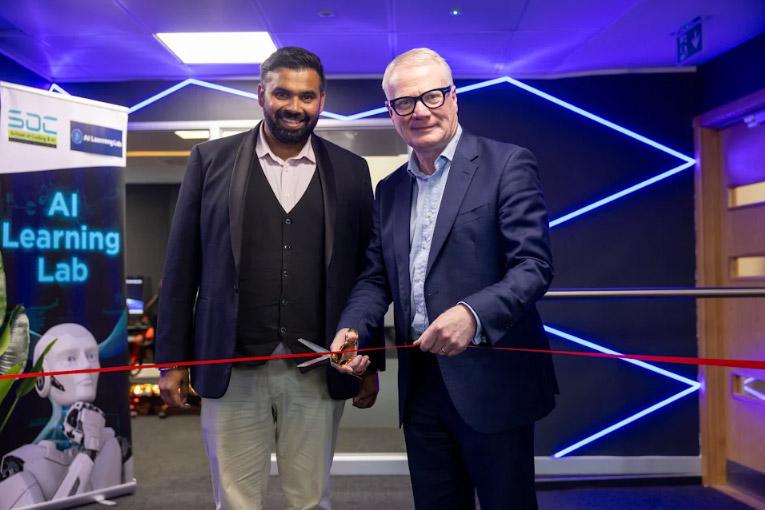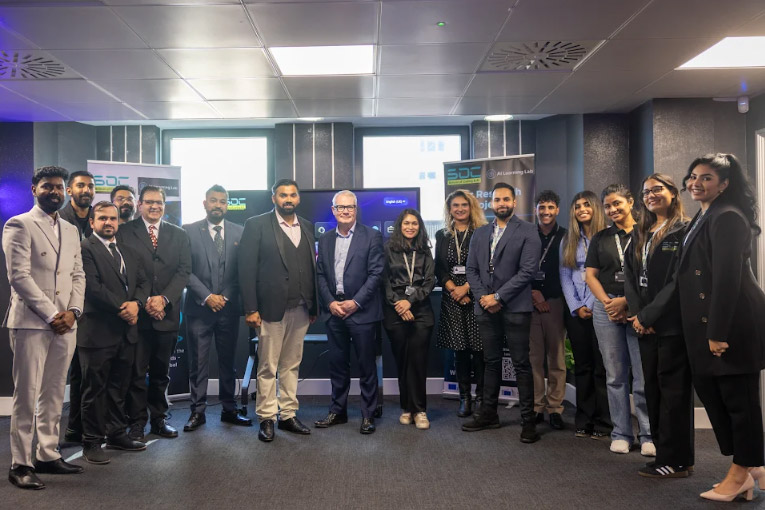Introduction
Manny Athwal, founder and CEO of School of Coding & AI, wins the Trailblazer Award and has been recognised as one of The LDC Top 50 Most Ambitious Business Leaders for 2025.
The Top 50 was created by LDC, the private equity investor that is part of Lloyds Banking Group, in partnership with The Times. Now in its eighth year, the programme continues to celebrate the drive and ambition of Britain’s best and brightest entrepreneurs.
This year the programme received almost 700 nominations, showcasing the exceptional individuals that are building successful, growing medium-sized businesses right across the UK.
Manny said: “It is a huge honour to be named among Britain’s most ambitious business leaders. It is a fantastic testament to what we, as a school, have achieved in a relatively short space of time.”
The business was founded in 2017 and since then Manny has taken the company from a bedroom office to a multi-office organisation with eight brands under the School of Coding & AI umbrella. This year, SoC unveiled a new £2.5 million AI lab at its Birmingham campus, with investment also under way in redeveloping its Wolverhampton headquarters.
“Although we are still a relatively young company, we have already made great strides in the education sector. We have exciting plans for our future, with further university partnerships. Our key driver has always been a desire to expose as many people as possible to coding, AI and computing, which is becoming more and more important for future careers.
“I want to pay tribute to the fantastic team I have around me, without whom none of this would be possible.”
The business leaders featured in The LDC Top 50 for 2025 are making a powerful impact by creating jobs, making a difference in the communities they serve, championing sustainability and expanding internationally. They are also demonstrating resilience as they drive growth and develop new ideas to innovate and diversify.
They operate from 67 towns and cities across the UK and span every sector of the economy, whilst collectively they employ almost 10,000 people and generate combined revenues of £1.2bn.
John Garner, Managing Partner at LDC, added: “In the eight years since we launched The LDC Top 50 we’ve had the honour of meeting some exceptional business leaders. This year’s cohort has shown drive and ambition in their growth journeys, proven remarkable resilience, and together they are making a real difference to their employees, the communities they work in and society at large. I’d like to congratulate them on everything they’ve achieved so far. Their success stories are only just beginning, and we’re excited to see where their journey takes them next.”
Read more about The LDC Top 50 Most Ambitious Business Leaders for 2025 here: http://bit.ly/4nT5afM
About School of Coding & AI
School of Coding & AI was founded in 2017 and is now the UK’s largest, multi award-winning, computer science and coding education company, teaching thousands of children and adults each month. SoC Works with hundreds of schools, colleges and businesses each year, delivering STEM, Coding, Computer Science, A.I. and Cyber Security courses.
SoC helps governments across the UK and 11 European countries to build strategies and methodologies to implement tech education into schools, youth and adult education. This helps countries become more innovative and reduces unemployment, whilst building the workforce for the future.
About LDC
LDC is a trusted investment partner for ambitious management teams across the UK. It is part of Lloyds Banking Group and has partnered with hundreds of medium-sized companies across a wide range of sectors, helping them to grow and develop.














